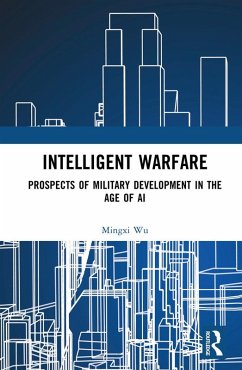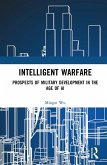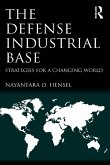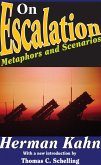Dieser Download kann aus rechtlichen Gründen nur mit Rechnungsadresse in A, B, BG, CY, CZ, D, DK, EW, E, FIN, F, GR, HR, H, IRL, I, LT, L, LR, M, NL, PL, P, R, S, SLO, SK ausgeliefert werden.
Aiguo Fei, Chairman of the Chinese Institute of Command and Control, China
"Since the primitive ages, war in human society has evolved through various stages, from cold weapons to thermal, mechanized, and information technology weapons, resulting in a diverse range of war forms and operation modes. What will be the trends and characteristics of future wars, and how will current conflicts undergo significant transformation? Mr. Mingxi Wu addresses these questions methodically in this book by elucidating ten transformations in the nature of war, eight applications, and nine-dimensional evaluation criteria. With a grand vision, extensive knowledge, and keen insights, this book provides in-depth analysis and forecasting on critical topics such as strategic factors influencing war, changes in war bases in the new era, the emergence of new operational capabilities, changes in the strategic deterrence system, the evolution of war control, the formulation of an intelligent ecosystem, and transformations in the form of intelligent wars."
Zherong Wang, Academician of the Chinese Academy of Engineering, China
"This is a book that illustrates novel technologies, applications, concepts and models. It is a monograph for academics and a popular science book, brimming with illuminating insights, novel ideas, substantial content, and sound knowledge. Its authority, professionalism, and readability make it an invaluable resource for navigating the military competition and challenges of the new intelligent era."
Yi Zeng, Honorary Chairman of Chinese Institute of Command and Control, China
"With broad viewpoints, big scenarios, and far-reaching foresight, this book delves into the details of future wars' technology, organization, training and battle, forms, and effects. This is a seminal study in the field of intelligent warfare. Humans have been researching conflicts in an attempt to avert them. Intelligent technologies enable individuals to build new types of 'informational' and 'intelligent' deterrence that may supplant traditional nuclear deterrence, thus reframing politics as a continuation of war. This is also the book's mission - to transform intelligent wars into peaceful conflicts."
Feiyue Wang, Director of the State Key Laboratory of Management and Control for Complex Systems, Institute of Automation, Chinese Academy of Sciences, China
"Mr. Mingxi Wu has spent decades researching defense technology, armament, and equipment and has been involved in developing and demonstrating several military projects. He has devoted his life to national defense while achieving high scholastic achievement and a breadth of knowledge, always concerned about the roles of new technologies in battles. His book, Intelligent Wars: Prospects of Military Development in the Age of AI, with a particular emphasis on science and technology as drivers of war evolution, meticulously analyzes, reasons, and forecasts the evolution of future wars. The author plays a leading role in theoretical and practical explorations."
Yuanshen Lei, Former member of the Discipline Appraising Groups, Academic Degree Committee of the State Council, China
"Mr. Mingxi Wu's book Intelligent Wars: Prospects of Military Development in the Age of AI thoroughly examines how intelligent technologies will impact future wars and how future military demands will drive intelligent technologies. The book is based on newly discovered information and cases from recent local and regional wars and conflicts. It advances a succession of novel perspectives, concepts, strategies, and methods, establishing a cornerstone and pioneering work in China's intelligent war research."
Fuchun Sun, Head of Academic Committee at the Department of Computer Science and Technology, Tsinghua University, China









